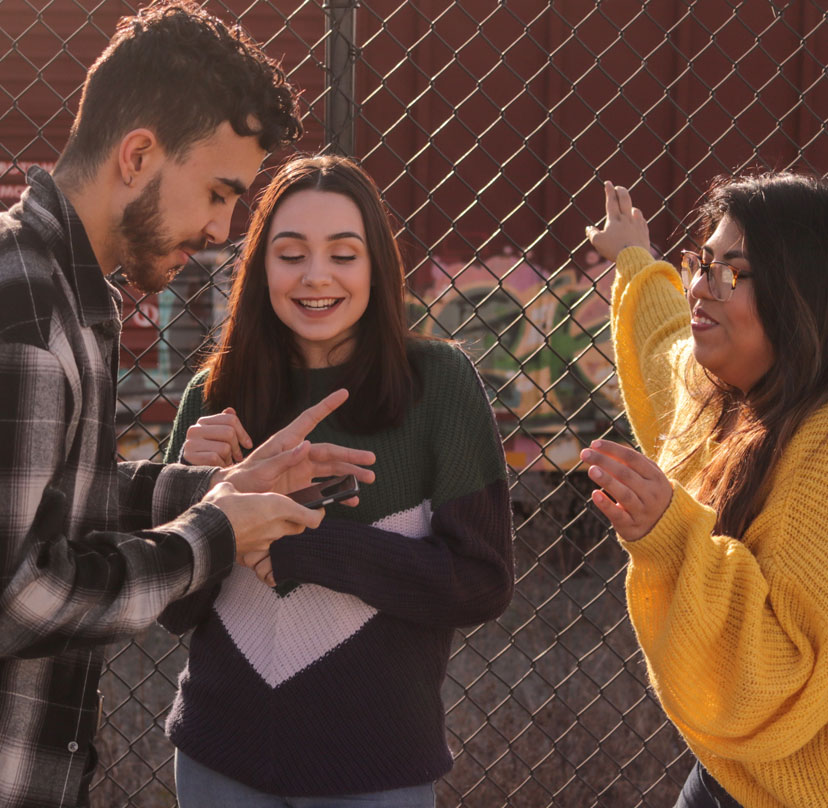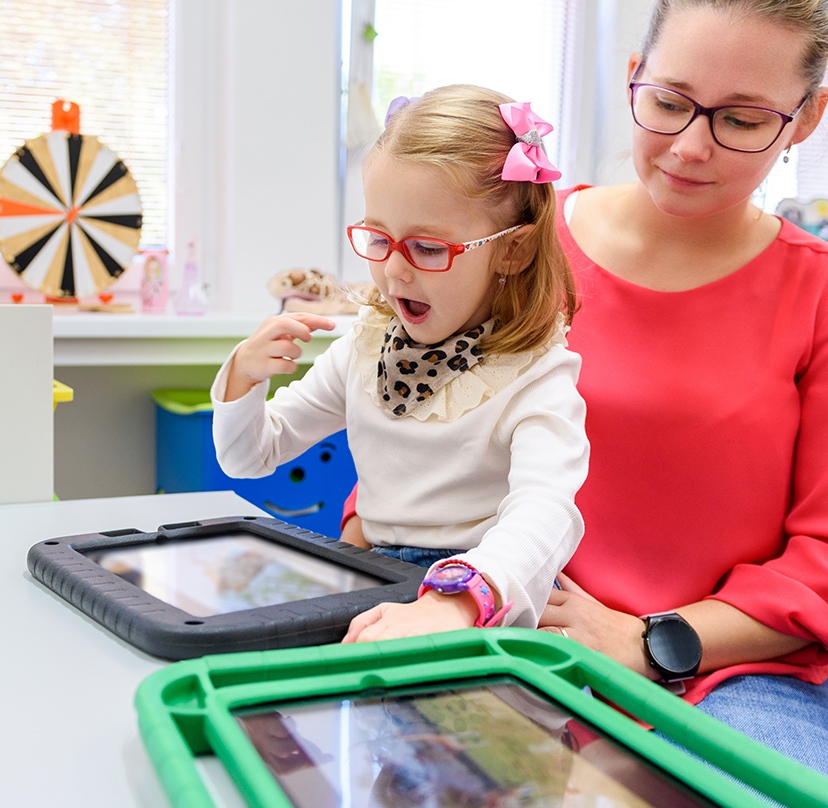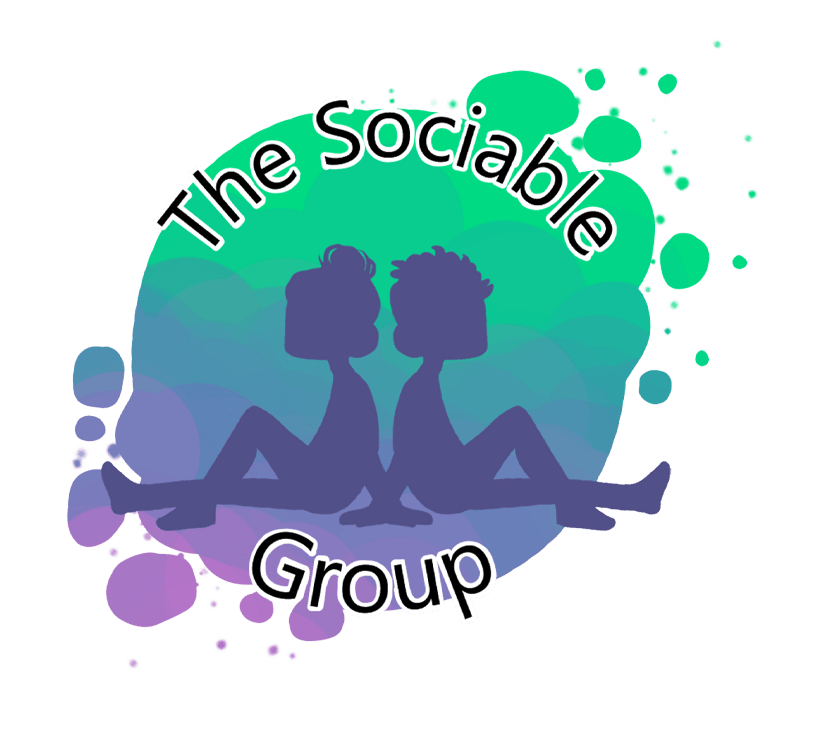Clinical Training & Research
The Sociable Group is committed to providing a Neurodiversity-Affirming service to individuals and their families. An integral part of fulfilling this commitment is continuing our professional enlightenment and development, education and practice. The Sociable Group fervently continue their lifelong learning through reading, attending seminars and webinars, completing courses, mentoring and connecting with individuals with lived experience.

Neurodivergent Voices
One of the most important lessons we have learnt is that the best lessons are learnt in real-time, with real-people. We learn most when we watch, meet and listen to the real experts – that is, the individuals themselves. The people with the lived experience.
We believe there is no greater source of information or advice on Neurodivergency than an Neurodivergent individual. It is only they who know the Neurodivergent experience. It is only they who truly know their daily struggles and challenges. It is only they who know what it is they need to live safely and to thrive in a society that is poorly equipped to support their Neurodivergency.
To further increase our understanding, to develop a deeper knowledge of Neurodivergency and to steer our Neurodiversity-Affirming practices, we engage in regular mentoring with Autistic adults and allied health professionals. In these meetings we discuss specific case studies, receive mentoring and guidance on our therapy practices and group programs, and we have the opportunity to get insight and expert advice from our very generous mentors and guides. It is through this professional development that we can learn how best to support and champion Neurodivergent individuals.

Play Based Therapy
Establishing positive connection is fundamental to a successful learning experience. Connection is best established through relaxed, safe and motivating interactions, centred around natural play styles. Therapists work with clients to reach their individualised goals using an engaging play-based approach, incorporating toys, special interests and interactive games.

Augmentative & Alternative Communication (AAC)
Intervention for Augmentative & Alternative Communication encompasses collaborating with an individual’s support team to find the ideal system for their current communication needs and supporting the future growth and development of their communication.
AAC intervention can involve assessment, and device and software trials for systems such as PODD, LAMP, Proloquo2go and TD Snap on a range of hardware.
Therapy support is also provided to promote independent communication skills for access methods such as direct, switch-access, eye gaze or partner assisted scanning.
Communication partners and key members of the indiviudals team are supported in modelling and faciliating AAC use to achieve true inclusion.

Strengths Based Approach
The Sociable Group follows a strengths-based approach to practice. We understand that difference is a natural and important component of life. We recognise that learning is individualised and appreciate that individuals have their own complex development and learning profile, demonstrated in distinct ways.
Historically, the Allied Health profession, including the field of Speech Pathology, has followed the Medical Model of Disability. This model views disability through a deficit lens. That is, it deems a person’s difference as an impairment – something that needs to be fixed or cured. This approach centres around what an individual cannot do and highlights the need to fix any differences or challenges. This thinking typically ignores strengths, overlooks potential, and minimises contributions.
In contrast, a strengths-based approach celebrates differences, focussing on an individual’s strengths, abilities and contributions, rather than honing in on what they cannot do and the challenges they face. It does not suggest that impairment or challenges do not exist, but rather spotlights differences as an important and natural occurrence comprising human diversity.
The Sociable Group views individuals holistically and strive to nourish all aspects of their experience -intellectual, physical , interpersonal skills, social, emotional and educational. In collaboration with the individual, their carers and support network, we identify the effective individualised therapeutic approaches required to assist them learn and develop in order to reach their potential.

Literacy Intervention
Our therapists at The Sociable Group are trained in a number of interventions that support and develop literacy skills;
- Sounds-Write
- The Spalding Method
- MultiLit
- Visualising and Verbalising
- Seeing Stars
- LiPS

Professional Development
Below is just some of the professional development we have had the opportunity to participate in, in recent years:
Goal Writing For Autistic Students: A Neurodiversity-Affirming Approaches Here
Designed and Instructed by Rachel Dorsey, MS, CCC-SLP with Consultative Input by Jess Miles, MOT, OTR/L
Participants received Certification.
This course provided comprehensive education on how to devise and write goals for Autistic students or clients that affirm their identity. This course revolutionised our goal writing for all our clients and further equipped us with skills to become a more Neurodiversity affirming practice.
Sensory Certificate Course for SLPs by Jessie Ginsburg, M.S., CCC-SLP.
Participants received Certification.
This course provided participants with knowledge and skills in the assessment of sensory preferences, patterns, and self-regulation skills. It finessed our treatment planning and added practical strategies and tools to our therapy tool box.
Making the Shift seminar with Jessie Ginsburg, M.S., CCC-SLP and Chris Wenger M.S. CCC-SLP
This seminar provided a full day of education, practical therapy strategies and insight from Autistic adults with lived experience. This seminar assisted us in continuing to further our knowledge and revamping our therapy approaches, so as to make our Practice a safe Neurodiversity-affirming space for our Autistic clients.
Resilience and Brilliance Masterclass hosted by Yenn Purkis (Neurodiversity Training International)
This masterclass addressed resilience, brilliance and being autistic. Yenn Purkis, a globally renowned autistic advocate, provided participants with knowledge about the building blocks for resilience for Autistic individuals. Yenn discussed the importance of developing safe places and the benefits of resilience for Autistic People.
Autism & Anxiety – A Masterclass with Jude Morrow – Neurodiversity Training International & Evaleen Whelton of Ausome Training.
Participants received Certification.
Presented by two Autistic adults, Jude and Evaleen discussed the reason why Autistic people tend to have poor mental health outcomes. They provided insight into ways society can help reverse this trend and explained the profound link between Autism and anxiety.
Autism and Social Skills Webinar with Evaleen Whelton (AUsome Training)
Participants received Certification.
In this seminar, Autistic advocate, Evaleen Whelton, discussed Autism and the different lenses through which it is viewed. Challenging participants’ thinking,
Evaleen discussed Autism through a social model and explained the Double Empathy theory. She discussed differences in communication styles and ways to enhance our communication. This seminar encouraged participants to be part of positive change for Autistic individuals.
Meaningful Speech Course by Alexandria Zachos, MS, CCC-SLP/L
There are two valid and natural ways to process and develop language:
Analytic Language Development and Gestalt Language Development. Analytic Language processors build on single words to produce sentences, whereas Gestalt Language processors process whole chunks of language first.
The Sociable Group therapists have participated in Alexandria Zachos, MS, CCC-SLP/L self-paced course to develop knowledge and skills in the assessment and provision of therapy for gestalt language processors.
Understanding ADHD: Current Research and Practice (Kings College London)
Participants received Certification.
This course explored the diagnosis of ADHD and best practice treatment options. It offered opportunities to hear from those with lived experience and provided practical strategies in regards to educating society about ADHD and supporting individuals.
"What the HELL is PDA?!” by Kristy Forbes – Autism & Neurodiversity Support
This webinar, hosted by two adults with a PDA profile, Harry Thompson and Kristy Forbes, discuss Pathological Demand Avoidance. They explore the variations in demand avoidance, the pathology behind it, it’s link to anxiety and ways to assist individuals with a PDA profile.
